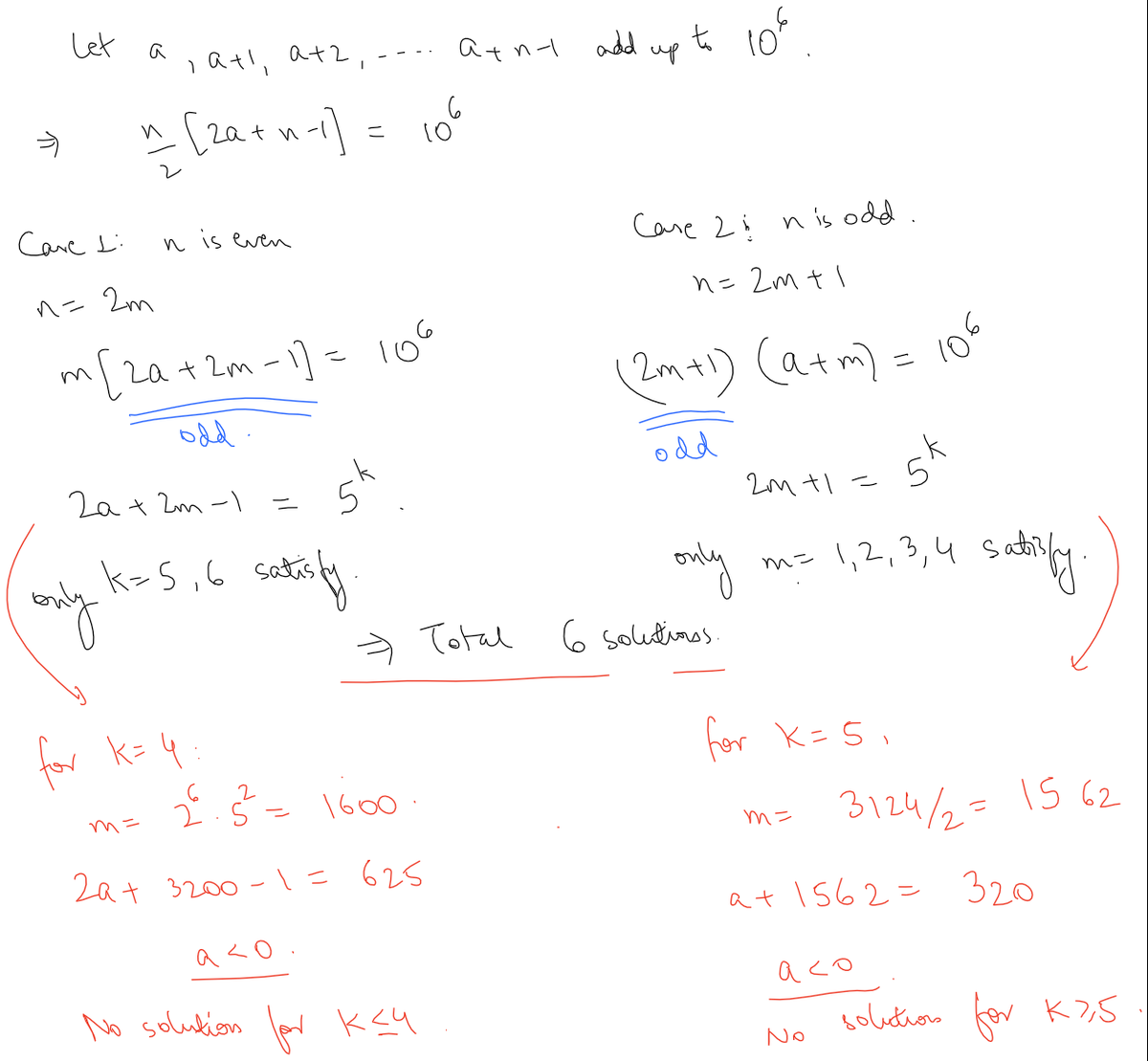Distinct consecutive sums!
1 2 4 3 + 1 2 4 4 + 1 2 4 5 + ⋯ + 1 8 8 2 1 2 8 8 + 1 2 8 9 + 1 2 9 0 + ⋯ + 1 9 1 2 = = 1 0 6 1 0 6
The above shows 2 ways to express 1 0 6 as the sum of 2 or more consecutive positive integers.
How many other ways can we express 1 0 6 as the sum of 2 or more consecutive positive integers?
The answer is 4.
This section requires Javascript.
You are seeing this because something didn't load right. We suggest you, (a) try
refreshing the page, (b) enabling javascript if it is disabled on your browser and,
finally, (c)
loading the
non-javascript version of this page
. We're sorry about the hassle.
2 solutions
More generally, to find the number of solutions to "odd * even = 2 k N " where N is odd, then there are 2 possibilities for where to place the powers of 2, and ϕ ( N ) / 2 ways to pair up the odd divisors. So it's a total of ϕ ( N ) .
Oh I don't know, I think one of the moderators/staffs added it. I'll remove it.
Great solution as usual!
Correcttt!!

We want to find 0 ≤ m < n such that 1 0 6 is the sum of the integers from m + 1 to n , so that 1 0 6 = 2 1 n ( n + 1 ) − 2 1 m ( m + 1 ) , and hence ( n − m ) ( n + m + 1 ) = 2 0 0 0 0 0 0 = 2 7 × 5 6 Thus n − m and n + m + 1 are positive numbers of opposite parity which multiply to 2 0 0 0 0 0 0 , and n + m + 1 > n − m . Thus there are 7 options: n + m + 1 2 7 × 5 6 2 7 × 5 5 2 7 × 5 4 2 7 × 5 3 2 7 × 5 2 5 5 5 6 n − m 1 5 5 2 5 3 5 4 2 7 × 5 2 7 n 1 0 0 0 0 0 0 2 0 0 0 0 2 4 0 0 1 2 8 0 6 2 1 9 1 2 1 8 8 2 7 8 7 6 m 9 9 9 9 9 9 1 9 9 9 9 7 3 9 9 8 7 7 9 3 7 1 2 8 7 1 2 4 2 7 7 4 8 The first option is not valid, since it just writes 1 0 0 0 0 0 0 as the sum of the single integer 1 0 0 0 0 0 0 . The other 6 are valid solutions, writing 1 0 0 0 0 0 0 as the sum of n − m = 5 , 2 5 , 1 2 5 , 6 2 5 , 6 4 0 , 1 2 8 consecutive integers respectively. These solutions include the two given in the question, so there are 4 other solutions.